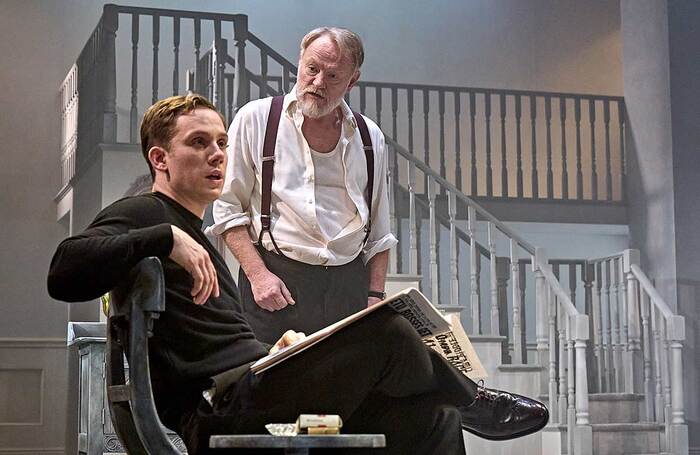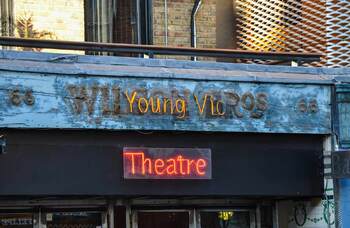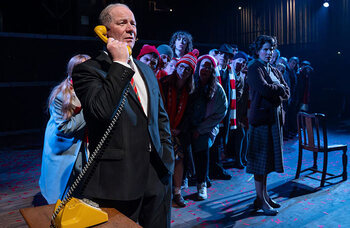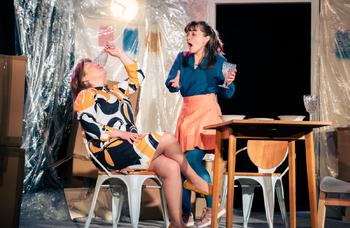Tremendously acted revival of Pinter’s remorselessly nasty early drama
Harold Pinter’s rancid family drama from the mid-1960s is back, and once again, it prompts a pair of conflicting observations. First, it reminds us what a peerless master of dialogue he was: the nuance in every jagged phrase – the gut-churning tension, the sewer-waft of choked-down trauma and festering grievance – is simply astonishing, making many more recent playwrights look like ham-fisted amateurs.
Second, even in a pungent, gripping and nastily funny production by Matthew Dunster, the play proves itself to be insoluble. Its climax, which sees the daughter-in-law of a tyrannical north London patriarch choose to become surrogate mother and lucrative sex worker to him, his brother and his sons is superficially presented as an act of female subversion, in which she throws off the shackles of married respectability to assume dominion over the household. But it makes no psychological sense, and in fact Pinter scarcely seems interested in accounting for her perverse decision; while the men, and their history, are depicted with a welter of intricate and disturbing implication, the woman remains little more than an enigmatic blank.
But if Dunster can’t square that circle – and I’m not convinced that any director could – he does deliver a tremendously acted staging that compels remorselessly. In Moi Tran’s design, the living room of the family home, ruled by father Max (Jared Harris), has a decayed stylishness. The once-smart furniture and the circular rug – which becomes like a boxing ring for violent and sexual face-offs – are revoltingly stained; a rocking chair, former throne of Max’s dead wife, sits vacant.
Continues...
Into this grotty domestic arena, son Teddy (Robert Emms) – who has escaped to America, and a career in academia – brings Ruth (Lisa Diveney), his wife of six years and the mother of his children. Diveney is overtly glamorous, dressed in a mini, chiffon nightie or glittering evening dress; her ruthless Ruth wields her erotic power deftly, but the threat of rape hangs heavy in the air as the copious cigarette smoke.
Harris’ Max is a wheedling, self-regarding bully, suppurating with clotted hatred and tremulous with suppressed terror of his advancing age and the vulnerability it brings. Harris queasily combines sadism and sentimentality, and Dunster turns a few of Max’s exchanges with his sons explicitly into flashbacks, in which we vividly glimpse a childhood of abuse, possibly sexual. Joe Cole’s hard-edged, neurotic pimp Lenny and David Angland as dopey would-be boxer Joey are both very clearly damaged, while Nicolas Tennant as Sam, Max’s chauffeur brother, has the battered stoicism of a man who for decades has served as an emotional punchbag.
By the end of the play, welcoming Ruth to the family with a noxious mix of avarice, lust and childlike neediness, they are all pretty pathetic – but they’re also dangerous: as eloquent an embodiment of toxic masculinity as anyone could ask. It’s a bleakly horrible psychodrama, delivered with consummate skill.
More Reviews
Recommended for you
More Reviews
Recommended for you
Most Read
Across The Stage this weekYour subscription helps ensure our journalism can continue
Invest in The Stage today with a subscription starting at just £7.99













